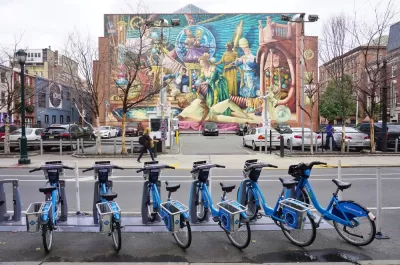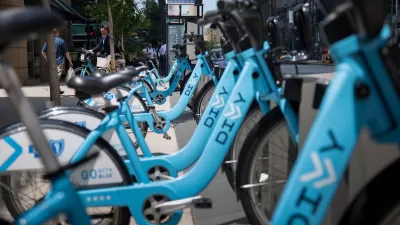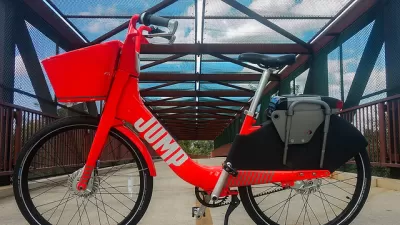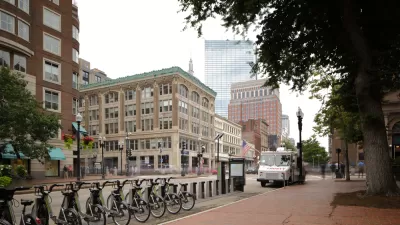As bikeshare operations have evolved and spread they've begun to differentiate, not just between docked and dockless, but also in terms of public or private ownership and electric and non-electric offerings.

Bikeshare operations have always varied from city to city, but as this mode of transit has become more popular, it's also become more diverse. "It’s easy to forget how young and unformed this transportation mode is: The first modern municipal bikeshare, Paris’s Velib, launched in 2007, and the first programs in the U.S. appeared in 2010," Alex Baca reports for CityLab.
Today there are a number of different types of bike share. One thing driving this differentiation is the variety of owners and funders of the services. "For example, D.C.’s Capital Bikeshare is publicly funded and publicly owned, but privately operated by Motivate, a firm that also operates Divvy in Chicago and Citibike in New York City. Divvy, like CaBi, is publicly funded, whereas Citibike is publicly owned but funded through sponsorships from Citibank and Mastercard," Baca writes.
The advent of dockless bikeshare changed the types of ownership again, in part because of the difference in equipment costs. "What users might not realize that the bikes themselves are also vastly cheaper, compared to traditional equipment. Each dockless bike costs its company about $200; traditional bikeshare bikes—the PBSC tanks, SoBi’s pre-Jump “smart bikes,” B-Cycle’s cruisers—are all north of $2,000," Baca writes.
If cities want to get the most out of this changing mobility service, they need to be careful how they craft their regulations, Baca argues. "Cities should fastidiously demand companies share their ridership data, and should hold operators to key performance indicators to keep bikes balanced and accessible." This would apply to e-bike, scooter and e-scooters as well.
FULL STORY: What Cities Need to Understand About Bikeshare Now

Planetizen Federal Action Tracker
A weekly monitor of how Trump’s orders and actions are impacting planners and planning in America.

Map: Where Senate Republicans Want to Sell Your Public Lands
For public land advocates, the Senate Republicans’ proposal to sell millions of acres of public land in the West is “the biggest fight of their careers.”

Restaurant Patios Were a Pandemic Win — Why Were They so Hard to Keep?
Social distancing requirements and changes in travel patterns prompted cities to pilot new uses for street and sidewalk space. Then it got complicated.

Platform Pilsner: Vancouver Transit Agency Releases... a Beer?
TransLink will receive a portion of every sale of the four-pack.

Toronto Weighs Cheaper Transit, Parking Hikes for Major Events
Special event rates would take effect during large festivals, sports games and concerts to ‘discourage driving, manage congestion and free up space for transit.”

Berlin to Consider Car-Free Zone Larger Than Manhattan
The area bound by the 22-mile Ringbahn would still allow 12 uses of a private automobile per year per person, and several other exemptions.
Urban Design for Planners 1: Software Tools
This six-course series explores essential urban design concepts using open source software and equips planners with the tools they need to participate fully in the urban design process.
Planning for Universal Design
Learn the tools for implementing Universal Design in planning regulations.
Heyer Gruel & Associates PA
JM Goldson LLC
Custer County Colorado
City of Camden Redevelopment Agency
City of Astoria
Transportation Research & Education Center (TREC) at Portland State University
Camden Redevelopment Agency
City of Claremont
Municipality of Princeton (NJ)





























